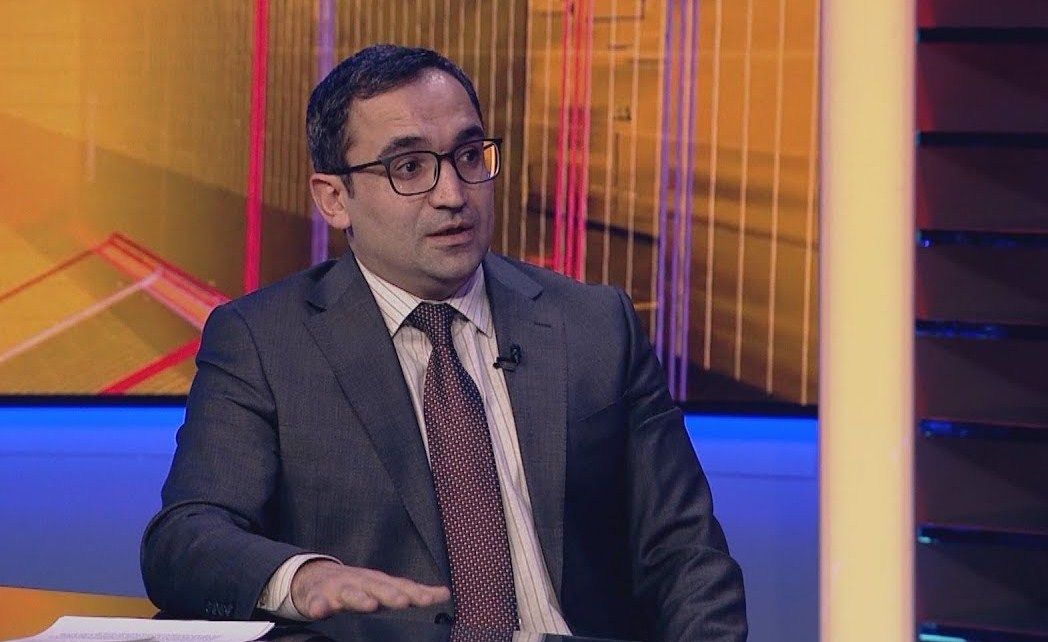By Sabina Alizade
On April 29, Azerbaijani President Ilham Aliyev held a meeting with Yan Wangmin, the chairman of the Chinese People's Association for Friendship with Foreign Countries. During the conversation, Aliyev expressed satisfaction with the level of political relations between the two countries and noted the activation of bilateral ties. Particular attention was given to cooperation in the transportation sector, specifically to the work on the Trans-Caspian Transport Route, which is part of the Middle Corridor. The President also emphasized the significant investments made by Chinese companies in the Azerbaijani economy and the consultations between the two countries in preparation for COP29.
In recent years, China has significantly expanded its economic and political influence globally. Its ambitious "One Belt, One Road" initiative strategically connects almost 100 countries, including Azerbaijan, which has keenly expressed its desire to be an integral part of this project. Azerbaijan has been proactive in developing modern infrastructure to facilitate the efficient transit of goods from China through to Europe and vice versa.
The geopolitical shifts, marked by the Russian military actions in Ukraine and crises in the Red Sea region, have sharply propelled the interest in the Trans-Caspian transport route (Middle Corridor). This corridor, facilitating cargo shipments from China to Europe via Azerbaijan, has become increasingly vital, fostering deeper cooperation between Azerbaijan and China.
The Trans-Caspian International Transport Route, or the Middle Corridor, stands out as a reliable, secure, and economically viable alternative linking China with Europe through Kazakhstan, the Caspian Sea, Azerbaijan, Georgia, and Turkey. Presently, this route supports the flow of goods from various Chinese cities such as Xi'an, Chengdu, Qingdao, Chongqing, Lianyungang, and Jinhua.
During the period from January to March 2024, the trade turnover between Azerbaijan and China increased by 19.8%, amounting to $748 million 785 thousand, up by $123 million 763 thousand compared to the same period last year.
According to News.Az, citing the State Customs Committee, this trade turnover accounted for 5.31% of Azerbaijan's total trade in the first quarter.
The report also highlights that during this period, imports from China to Azerbaijan were valued at approximately $743 million 728 thousand, while exports from Azerbaijan to China stood at around $5 million.
It is noteworthy that in 2023, the trade turnover between Azerbaijan and China had increased by 43.7%, or $942.5 million, reaching $3 billion 101.5 million.
Furthermore, Azerbaijan's total trade turnover in the first quarter of 2024 amounted to $9 billion 695 million, with non-oil exports valued at $673 million 709 thousand.
China is recognized as a major potential investor in Azerbaijan. To date, investments from China have approached approximately $1.5 billion. In return, Azerbaijan has also made substantial investments in China, totaling over $1.7 billion.
Azerbaijan also regards China as a key export market for its non-oil products. Since 2018, several "Azerbaijan Trade Houses" and "Azerbaijan Wine Houses" have been established in major Chinese cities like Beijing, Xi'an, Qingdao, Shanghai, and Urumqi, with plans to expand further.
The "Azerbaijan Trade House" in Chengdu is situated in the Sichuan Free Trade Zone, serving as a crucial node for the Trans-Caspian International Transport Corridor. This trade house, covering an area of about 600 square meters, is part of a larger complex that includes pavilions from 34 countries, showcasing the global reach of this initiative.
The significant presence of Azerbaijani trade and wine houses in China has played a pivotal role in promoting Azerbaijani products, enhancing their visibility and competitive edge in the Chinese market. The "Sichuan Rongda Juxin International Trade" company, which operates these houses, plays a critical role in importing Azerbaijani goods into China, aiming to expand their market presence significantly.

Economics expert Khalid Karimli highlighted the significant role China has played in Azerbaijan's trade dynamics over the past ten years. Ranking alongside Russia and Turkey, China remains one of Azerbaijan's top three trading partners, accounting for 17-18% of Azerbaijan's total imports.
Despite the heavy import dependence, Karimli noted China's investments have not been limited to the oil and gas sectors. There has been noteworthy progress in the non-oil sectors as well, diversifying economic interactions between the two nations.
Karimli also touched upon Azerbaijan's pivotal role in China's ambitious 'One Belt, One Road' initiative. He acknowledged the initiative's slow start, but emphasized the steady progress, with cargo transportation through this corridor increasing annually by 26-30%. However, he pointed out that these numbers still fall short of the corridor's full potential.
Challenges such as the underutilized Baku-Tbilisi-Kars railway and delays in the Zangezur corridor remain. Additionally, efforts to reroute through Iran have been underway but are yet to achieve anticipated outcomes. Karimli remains hopeful for the future enhancements in these trade routes, which are critical for the full activation of the 'One Belt, One Road' initiative in the region.

Elshad Mammadov, a professor of economic sciences, has stated that trade relations between China and Azerbaijan are currently experiencing their most dynamic development phase in recent decades. He noted that China has surpassed others in exporting high-tech products and overall economic development, attributing this advancement to the Chinese management system.
Professor Mammadov also pointed out that the prospects between Azerbaijan and China extend beyond just the Middle Corridor. He explained, "The Middle Corridor serves as a bridge between Azerbaijan and China, yet trade exists between our countries even without this corridor. However, economic recession in Europe is causing European markets to gradually shrink and is leading to numerous challenges in the context of China and Europe. Thus, I view the relations between Azerbaijan and China from a broader perspective, not only through the Middle Corridor. The Eurasian region is on the brink of significant changes that can be anticipated. We will then recognize the effectiveness of Asian countries' economic management models, underscoring the importance of deepening economic ties with these nations."
Mammadov lamented that despite the growing trend in mutual trade turnover and investment development, both countries are still far from exploiting their full potential. He remarked that entering the Chinese market in the non-oil sector is quite challenging. Given that China is a manufacturing hub and we lack direct borders with it, substantial trade turnover between Azerbaijan and China is not yet evident. However, as regional economic development intensifies and regional economic unions emerge, we will undoubtedly witness an enhancement of trade relations.
The economist highlighted that a characteristic of foreign economies is their need to be part of regional economic unions or bordering countries to ensure robust integration and stronger trade development. He believes that the "One Belt, One Road" initiative will foster economic relations between Azerbaijan and China, boosting the trade turnover of both nations.

